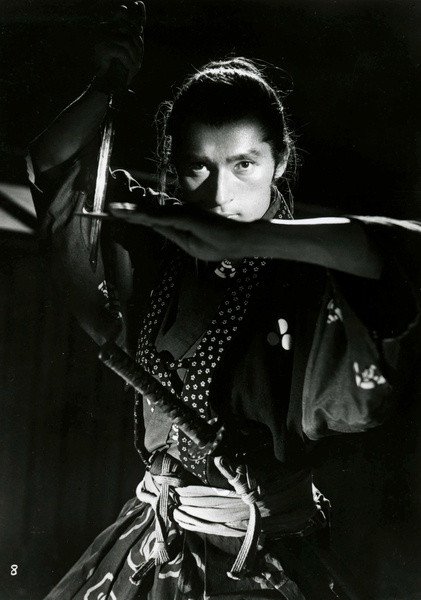
Shochiku Nouvelle Vague 2007 / Ibun sarutobi sasuke / Japan 1965
Flying swordfights as we know them from Crouching Tiger, Hidden Dragon have an earlier origin. These martial techniques of the proverbial ninja spies are one of the dominant characteristics of this Shinoda film, set at the beginning of the 17th century, when the country stood on the threshold of war between the Tokugawa and Tojotomi clans.


Masahiro Shinoda’s samurai film with the background scheme of a spy story is about the laborious forging of peace amid a convoluted state of war. At the beginning of the 17th century the country is on the threshold of war between the Tokugawa and Toyotomi clans, a war accompanied by the frantic activity of spies. The hero of the movie, Sasuke, works as a spy for the Sanada family, whose ruler has decided to investigate the real intentions of the duelling parties and send his spies to infiltrate them. Sasuke is dragged into a murky entanglement, at the centre of which is the defection of one clan’s head operative to the enemy. Sasuke’s story is accompanied by duels, rendezvous between double agents, uncertainty over who is who, and love for the orphaned girl Omiyo. After a series of duels the end is victorious for Sasuke. The wind tears through the fog on the plain and it seems that the hero’s longed-for time of repose has come... The martial techniques of the spies, the proverbial ninja, which also include flying swordfights as popularised in Crouching Tiger, Hidden Dragon, are one of the film’s most distinct dominant characteristics.
103 min / Black & white, 35 mm
Director Masahiro Shinoda
/ Screenplay Yoshiyuki Fukuda podle románu / based on a novel by Koji Nakada
/ Dir. of Photography Masao Kosugi
/ Music Tôru Takemitsu
/ Production Shochiku
/ Cast Koji Takahashi, Misako Watanabe, Tetsuro Tamba, Yasunori Irikawa, Shintarô Ishihara, Seiji Miyaguchi, Eiji Okada
/ Contact Shochiku Co., Ltd., The Japan Foundation

Masahiro Shinoda (b. 1931, Gifu prefecture) is a director known as the intellectual of the Japanese New Wave. He studied theatre history at university but was forced to seek work early on after the death of his mother in 1953. His experience in the Shochiku studio led to his debut One Way Ticket to Love, 1960. From the outset Shinoda was fascinated by the deeper psychology and aesthetics that his distinct visual style brought to his films. After leaving Shochiku in 1965, in an independent production, he focused on the work of classic dramatist Monzaemon, among others. The films Double Suicide, 1969 and Gonza the Spearman, 1986, for which Shinoda was awarded a special Silver Bear at the Berlin Festival, were based on Monzaemon’s work. The films Silence, 1971 and MacArthur’s Children, 1984, in which the director turned to the consequences of the Second World War for his generation, were both distributed in Czech cinemas.
Shochiku Co., Ltd.
4-1-1 Tsukiji, Togeki Bldg. 12th Floor, Chuo-Ku, 104 8422, Tokyo
Japan
Phone: +81 355 501 623
Fax: +81 355 501 654
E-mail: [email protected]
The Japan Foundation
4-16-3 Yotsuya, Shinjuku-ku, 160-0004, Tokyo
Japan
Phone: +81 355 623 535
Fax: +81 355 623 500
E-mail: [email protected]

Junko Kawaguchi

Masahiro Shinoda
Film Director, Film Director

Marie Suzuki
Institution
First-hand brews throughout the year.
Be among the first to learn about upcoming events and other news. We only send the newsletter when we have something to say.